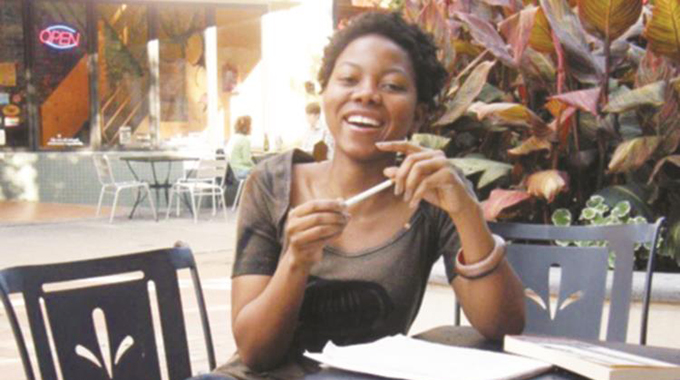Gender issues in Zim literature

Tanaka Chidora Literature Today
From the 17th to the 19th of July this year, a conference on gender was held at the University of Zimbawe. During the course of the conference, I managed to glean various sentiments concerning gender, the most dominant of which was the need to create an en- abling environment for women to realise their full potential. The assumption was that the social, political and economic environment is heavily skewed in favour of men. The presenters made brilliant arguments that got me convinced that, yes, the need for equality, for inclusivity, is more urgent now than before.
Being a man, however, made me feel alienated because no one likes being indiscriminately labelled a villain, a beneficiary of a skewed system. That is why I liked the paper of academic researcher and lecturer, Sheunesu Mandizvidza, which was titled “Dissident Re-gendering” in which he argued that it is very easy to move around brandishing the “MAN AS VILLAINS AND WOMEN AS VICTIMS” dichotomy. According to him, we need to be aware of the various complexities that characterise our everyday lives and relationships, complexities that make it difficult to take that dichotomy as the absolute conclusion of the nature of our lives.
Mandizvidza then embarked on what he called “a panoptic view” of Zimbabwean literature in order to have an idea of how gender relations play out. For him, literature is life because the representation of life and the cognition of life are two sides of the same coin. This then makes it possible for literature to speak dissident truths that are sometimes conveniently ignored in non-literary discourses and agendas.
Mandizvidza went on to destabilise the dichotomy that I mentioned earlier in this review by showing us that in some instances men are actually victims of villainous women! He gave the example of Dambudzo Marechera’s “House of Hunger” (1978) in which the mother, brother and father seem to be ganging up to jeopardise the child narrator’s childhood.
According to the narrator, “. . . But mother was more feared than respected. She was a hard worker in sc***ing, running a home, and maintaining a seemingly tight rein over her husband; and, more important for me, she had nothing better to do than to throw her children into the lion’s den of things white. Peter took after her, while I was more my father.
“Certainly father could never control Peter – only mother could do that; and therefore father handled me severely. Peter, of course, early became the enemy of all fathers and mothers who had daughters. He and mother gave to the House a whiff of scandal strong enough to be detected throughout the whole region.”
According to Mandizvidza, this woman is not the idealised woman of the “Mother Africa” trope that we find in Senghorian negritudinal musings. She contributes immensely to the child’s vulnerabilities and is a threat to the survival of the family. Mandizvidza went on to quote Muponde (2006: 522) who argues that: “The mother inverts the usual patriarchal iconic material that privileges the position of the father as invulnerable, unerring master of the house in all spheres: economic, social, sexual.
“She arrogates to herself the symbology of patriarchal power: the self-willed master of her destiny, author and subject of her life. But, like her husband, she remains an emblem of what threatens the unitary order of the generic family.” In this way, the MEN AS VILLAINS AND WOMEN AS VICTIMS trope is disfigured by this literary representation of the colonial family.
Mandizvidza then cited an example from a short story titled “Danfo Driver” by Musiyiwa in an Irene Staunton-edited anthology, “Writing Free” (2011). In this short story, the mother runs a matriarchal regime that is as dangerous as patriarchy itself. Her administration of punishment is brutal, so brutal that the chances of the child becoming an adult are far-fetched.
In one episode she beats the boy for asking for school fees: “He had stopped reminding his mother about the school fees because the last time he did so she beat him so badly he thought he would die. She had punched him, and when he fell, she had kicked him and she had kept on kicking him until he passed out and she left him on the floor … She was gone for many days” (p. 106).
While someone may argue that her disposition is a product of the already skewed economic relations, there is no evidence in the story that some men are not also going through that, and there is also no evidence that some women are not better off and are direct beneficiaries of such skewed relations.
Which brings me to another literary example that Mandizvidza gave: “We Need New Names” (NoViolet Bulawayo, 2013). In the ironically named shanty location of Paradise, men escape to the bush to cry like children: “Generally, the men always tried to appear strong; they walked tall, heads upright, arms steady at the sides, and feet firmly planted like trees. Solid, Jericho walls of men. But when they went out in the bush to relieve themselves and nobody was looking, they fell apart like crumbling towers and wept with the wretched grief of forgotten concubines” (p. 76).
The men are also victims here, just like the women and children, and because they are expected to act strong, they wear brave faces, facades that crumble when they escape to the loneliness of the bush. Men also want to cry; men also want to have a shoulder to lean on; but because they are expected to act as men, they go through the motions everyday while pent-up emotions build up inside to the detriment of their survival.
Reminds me of what someone said (I have forgotten the name; I read too many things I think): “When I was born, they called me a man/woman; when am I going to be a human being?” Mandizvidza’s presentation made me realise that we are all individuals with different identities which cannot be subsumed under the tags of man or woman. Underneath these tags are hidden various forms of humanity which need to be understood.







Comments